The spirits category has long been hiding its light under a bushel and denying itself some serious profits. That's the message from several key players within the industry who are urging retailers to let the category shine in both positioning and profits.
A survey by shopper research consultants HIM shows the main reason for the spirit category failing to fulfil its potential in convenience stores is the fear of theft, which leads to retailers keeping products behind the counter. Customers are forced to buy products before really having the chance to examine and compare brands. Within supermarkets and off licences shoppers can pick up bottles, compare brands and prices and read the labels to help them with their buying decision.
According to Diageo category innovation manager Helen Green, the category is an untapped growth opportunity in UK convenience. "In convenience stores spirits often do not get the focus they warrant," she says. "The reality is that when customers purchase spirits in convenience stores they are frequently pressed for time. Yet many stores do not clearly display their spirits, making it difficult for customers to make the decision.
"Shoppers find the ranges of spirits in c-stores quite confusing and because they are behind the counter they can get embarrassed about asking."
Dave Batt from IMA - the company that implements the Federation of Wholesale Distributors' Blueprint programme - agrees. "If you're doing a shop on a Sunday morning in a supermarket you can scan the shelves and put a bottle of vodka in without really thinking about it. But in a small shop you have to ask for it in front of everyone you know - and maybe you think they're thinking 'There goes Mrs Smith again'. Self-selection is better than bottles being hidden behind counters."
The idea of taking spirits out from behind the counter and putting them in front of the till fills many retailers with dread. However, Green says that while theft is a factor that needs to be considered, the fear of it is causing some retailers to be unnecessarily cautious. "There is a misconception as to how big the problem is. You have to measure up the risk to how big the potential is," she says.
Richard Hipkin of Londis Chateau Wines in Marks Tey, near Colchester, Essex, agrees. Coming from an off licence background into convenience retailing meant he didn't think twice about putting his spirits in front of the till.
"Retailers can be very suspicious of everything and everyone. I might be lucky where I am, but if I've got to defend all my stock from my customers then I can't see the point in having a shop there."
He says he loses only the odd bottle from the display unit that sits by the till where he can keep an eye on it. "People want to read the labels and don't like to ask for things - they don't want to look stupid. And nobody likes being treated like a shoplifter.
"I know a lot of my customers and know the ones to keep an eye on."
He doesn't use security caps either - "It's like saying to people you don't trust them" - and the only concession he has to security is that the expensive whiskies are on the top shelf and have a slightly higher shelf edge. "It looks like it's to stop them falling off but in reality it makes it very awkward for anybody to take a bottle off the shelf without clinking another one."
Keeping the category out front, he says, is worth about 25-30% in sales. Besides, he says, he - like many retailers - has higher value stock on the floor anyway. "I've got plenty of wines and Champagne worth as much as the spirits and they're out on display."
He says that the only drinks he keeps behind the counter are the half- and quarter-bottles which can easily be pocketed.
For retailers who don't feel quite ready to put their faith in their customers there's Putting Leaders on Display (PLOD) from the FWD. It employs the use of a security cap, fixed to the top of each bottle, for aisle displays of spirits. The cap, supplied by Colindale Associates, can be removed only by the retailer through a cap releaser fixed at the till, or by smashing the bottle.
Batt says that the extra security offered by the caps is what most retailers want. "I would say that in most cases retailers want the security measures in place before they jump to putting spirits on aisle display. Even the multiples have got security measures."
He says that some retailers are worried about the look of bottles with the caps on but adds: "it's not about whether it looks nice; it's about whether it works".
According to FWD Blueprint initiatives chairman Alan Toft, getting spirits out where customers can see them and ranging them according to the FWD Spirits and Fortified Wine Blueprint could help retailers see a huge rise in sales. Toft says that trials of PLOD are going so well that c-stores could be on the brink of a "dramatic revolution in the way spirits are merchandised in our sector".
Initial results are good and no retailer has reported a fall in sales from moving the spirit fixture, or any theft of bottles. Toft says: "Independent retailers have been very willing to help the pilot scheme as they see that the concept is correct."
One participant has seen remarkable results from the scheme. Sunder Sandher of Londis Leamington Spa saw his spirit sales leap by 26.8% volume and 20.6% value compared with January and February last year after PLOD was implemented.
The store sold more spirits during the trial than it did in the run up to Christmas. Sunder says that he was initially reticent about the trial: "Like any other retailer I thought 'Oh no' - with high-value items you're asking for trouble." His store, he says, is in a relatively high crime area of Leamington Spa and employs CCTV. However, once he saw how secure the caps were he moved some slow-moving lines of magazines from next to the till and replaced them with 1ltr and 70cl bottles of spirits.
"I waited until January and surprise, surprise, spirits did the same in January as they had at Christmas, then they held steady in February and March."
He says he has had a couple of people come in and try to get the caps off but they gave up. "They want it to sell into the pubs but the caps are impossible to get off without breaking the necks, which is no good for them."
Any fear about long queues forming while waiting for the caps to be taken off at the till have been unfounded. "They're easy to take off with the proper device - no hassle," says Sunder.
Following the trial's completion a programme advising independent retailers on the results will be published, along with a guide on how to introduce the initiative. Toft was unable to confirm what, if any, costs would be charged to retailers undertaking the scheme. The programme will be available in June and PLOD will thereafter be part of the Blueprint advisory service.
Toft admits, though, that the scheme may not be right for all retailers. One such store owner could be Manit Odedra of Londis in Kingstanding, Birmingham. He says that the scheme would never work in his store as crime is just too high. "We have a security guard and if a person is determined to walk out with a crate of Budweiser and knock the security guard over, too, then spirits don't stand a chance."
He says that he even puts body sprays behind his counter as they are stolen on a regular basis if kept in the aisles.
Manit has visited retailers who have put spirits out in the aisles and says he was initially shocked - "but they turned out to be in low crime areas".
To be persuaded to move his fixture, Manit says he would have to see it working well in a store in similar circumstances to his own.
Toft says that this view is not uncommon but believes 80% of retailers could improve their spirit sales by adopting PLOD or a variation of it. "It will be a matter of sensible adaptation," he points out.
Yet it's not just the merchandising of the category that makes sales rise. Richard Hipkin, those involved in PLOD, and Green all agree that clever ranging is also a factor in spirit sales.
Says Batt: "If you get the range and the merchandising right, it works."
Richard says he's extremely strict with his range and doesn't stock any "fringe items".
Ranging is at the heart of Diageo Essentials, a free category information series on spirits specifically for convenience stores, launched last year. "Customers also want big name brands they recognise and trust," says Green. "In some stores there can be eight or nine vodkas, when in reality 80% of sales are through two lines."
As well as advice on ranging, Essentials focuses on, merchandising display, promotions and visible pricing. "We're talking about making what's behind the counter more impactful," says Green. She points out that retailers can make big differences to spirit sales without moving the fixture and cites an extra £1,872 a year on average weekly spirit sales of £400 by applying the Essentials ranging principles. Apply both ranging and merchandising principles and the company estimates that the same shop could be making an extra £2,912 a year.
Says Green: "The work we've been doing in the past 18 months is focused around the shopper and trying to make buying spirits simple, easy and engaging."
Batt says at the very least retailers should give the upfront technique some thought. He adds: "Every independent retailer believes that their store is different to every other independent retailer when a lot of the core business is the same. But it's the 10% willing to try something who change things."
Sunder agrees that this type of merchandising won't suit all retailers, particularly those in very high crime areas, but he has no regrets: "It's been a fantastic uplift in sales so they're not going back. It'll be interesting to see what happens at Christmas."
And Richard Hipkin has this advice for retailers who are worried about putting their spirits out on display: "You're losing sales and profit by not doing it. If you're that worried do a bottle count every day, it'll take you 20 minutes. If something is gone you've got an issue, but I bet most losses will be negligible. Be brave."
11% bias to male shoppers
27% bias to older shoppers
4.5 visits per week over the usual 3.5 for other categories
Top spend is £16.96
20% impulse spend
A survey by shopper research consultants HIM shows the main reason for the spirit category failing to fulfil its potential in convenience stores is the fear of theft, which leads to retailers keeping products behind the counter. Customers are forced to buy products before really having the chance to examine and compare brands. Within supermarkets and off licences shoppers can pick up bottles, compare brands and prices and read the labels to help them with their buying decision.
According to Diageo category innovation manager Helen Green, the category is an untapped growth opportunity in UK convenience. "In convenience stores spirits often do not get the focus they warrant," she says. "The reality is that when customers purchase spirits in convenience stores they are frequently pressed for time. Yet many stores do not clearly display their spirits, making it difficult for customers to make the decision.
"Shoppers find the ranges of spirits in c-stores quite confusing and because they are behind the counter they can get embarrassed about asking."
Dave Batt from IMA - the company that implements the Federation of Wholesale Distributors' Blueprint programme - agrees. "If you're doing a shop on a Sunday morning in a supermarket you can scan the shelves and put a bottle of vodka in without really thinking about it. But in a small shop you have to ask for it in front of everyone you know - and maybe you think they're thinking 'There goes Mrs Smith again'. Self-selection is better than bottles being hidden behind counters."
The idea of taking spirits out from behind the counter and putting them in front of the till fills many retailers with dread. However, Green says that while theft is a factor that needs to be considered, the fear of it is causing some retailers to be unnecessarily cautious. "There is a misconception as to how big the problem is. You have to measure up the risk to how big the potential is," she says.
Richard Hipkin of Londis Chateau Wines in Marks Tey, near Colchester, Essex, agrees. Coming from an off licence background into convenience retailing meant he didn't think twice about putting his spirits in front of the till.
"Retailers can be very suspicious of everything and everyone. I might be lucky where I am, but if I've got to defend all my stock from my customers then I can't see the point in having a shop there."
He says he loses only the odd bottle from the display unit that sits by the till where he can keep an eye on it. "People want to read the labels and don't like to ask for things - they don't want to look stupid. And nobody likes being treated like a shoplifter.
"I know a lot of my customers and know the ones to keep an eye on."
He doesn't use security caps either - "It's like saying to people you don't trust them" - and the only concession he has to security is that the expensive whiskies are on the top shelf and have a slightly higher shelf edge. "It looks like it's to stop them falling off but in reality it makes it very awkward for anybody to take a bottle off the shelf without clinking another one."
Keeping the category out front, he says, is worth about 25-30% in sales. Besides, he says, he - like many retailers - has higher value stock on the floor anyway. "I've got plenty of wines and Champagne worth as much as the spirits and they're out on display."
He says that the only drinks he keeps behind the counter are the half- and quarter-bottles which can easily be pocketed.
For retailers who don't feel quite ready to put their faith in their customers there's Putting Leaders on Display (PLOD) from the FWD. It employs the use of a security cap, fixed to the top of each bottle, for aisle displays of spirits. The cap, supplied by Colindale Associates, can be removed only by the retailer through a cap releaser fixed at the till, or by smashing the bottle.
Batt says that the extra security offered by the caps is what most retailers want. "I would say that in most cases retailers want the security measures in place before they jump to putting spirits on aisle display. Even the multiples have got security measures."
He says that some retailers are worried about the look of bottles with the caps on but adds: "it's not about whether it looks nice; it's about whether it works".
According to FWD Blueprint initiatives chairman Alan Toft, getting spirits out where customers can see them and ranging them according to the FWD Spirits and Fortified Wine Blueprint could help retailers see a huge rise in sales. Toft says that trials of PLOD are going so well that c-stores could be on the brink of a "dramatic revolution in the way spirits are merchandised in our sector".
Initial results are good and no retailer has reported a fall in sales from moving the spirit fixture, or any theft of bottles. Toft says: "Independent retailers have been very willing to help the pilot scheme as they see that the concept is correct."
One participant has seen remarkable results from the scheme. Sunder Sandher of Londis Leamington Spa saw his spirit sales leap by 26.8% volume and 20.6% value compared with January and February last year after PLOD was implemented.
The store sold more spirits during the trial than it did in the run up to Christmas. Sunder says that he was initially reticent about the trial: "Like any other retailer I thought 'Oh no' - with high-value items you're asking for trouble." His store, he says, is in a relatively high crime area of Leamington Spa and employs CCTV. However, once he saw how secure the caps were he moved some slow-moving lines of magazines from next to the till and replaced them with 1ltr and 70cl bottles of spirits.
"I waited until January and surprise, surprise, spirits did the same in January as they had at Christmas, then they held steady in February and March."
He says he has had a couple of people come in and try to get the caps off but they gave up. "They want it to sell into the pubs but the caps are impossible to get off without breaking the necks, which is no good for them."
Any fear about long queues forming while waiting for the caps to be taken off at the till have been unfounded. "They're easy to take off with the proper device - no hassle," says Sunder.
Following the trial's completion a programme advising independent retailers on the results will be published, along with a guide on how to introduce the initiative. Toft was unable to confirm what, if any, costs would be charged to retailers undertaking the scheme. The programme will be available in June and PLOD will thereafter be part of the Blueprint advisory service.
Toft admits, though, that the scheme may not be right for all retailers. One such store owner could be Manit Odedra of Londis in Kingstanding, Birmingham. He says that the scheme would never work in his store as crime is just too high. "We have a security guard and if a person is determined to walk out with a crate of Budweiser and knock the security guard over, too, then spirits don't stand a chance."
He says that he even puts body sprays behind his counter as they are stolen on a regular basis if kept in the aisles.
Manit has visited retailers who have put spirits out in the aisles and says he was initially shocked - "but they turned out to be in low crime areas".
To be persuaded to move his fixture, Manit says he would have to see it working well in a store in similar circumstances to his own.
Toft says that this view is not uncommon but believes 80% of retailers could improve their spirit sales by adopting PLOD or a variation of it. "It will be a matter of sensible adaptation," he points out.
Yet it's not just the merchandising of the category that makes sales rise. Richard Hipkin, those involved in PLOD, and Green all agree that clever ranging is also a factor in spirit sales.
Says Batt: "If you get the range and the merchandising right, it works."
Richard says he's extremely strict with his range and doesn't stock any "fringe items".
Ranging is at the heart of Diageo Essentials, a free category information series on spirits specifically for convenience stores, launched last year. "Customers also want big name brands they recognise and trust," says Green. "In some stores there can be eight or nine vodkas, when in reality 80% of sales are through two lines."
As well as advice on ranging, Essentials focuses on, merchandising display, promotions and visible pricing. "We're talking about making what's behind the counter more impactful," says Green. She points out that retailers can make big differences to spirit sales without moving the fixture and cites an extra £1,872 a year on average weekly spirit sales of £400 by applying the Essentials ranging principles. Apply both ranging and merchandising principles and the company estimates that the same shop could be making an extra £2,912 a year.
Says Green: "The work we've been doing in the past 18 months is focused around the shopper and trying to make buying spirits simple, easy and engaging."
Batt says at the very least retailers should give the upfront technique some thought. He adds: "Every independent retailer believes that their store is different to every other independent retailer when a lot of the core business is the same. But it's the 10% willing to try something who change things."
Sunder agrees that this type of merchandising won't suit all retailers, particularly those in very high crime areas, but he has no regrets: "It's been a fantastic uplift in sales so they're not going back. It'll be interesting to see what happens at Christmas."
And Richard Hipkin has this advice for retailers who are worried about putting their spirits out on display: "You're losing sales and profit by not doing it. If you're that worried do a bottle count every day, it'll take you 20 minutes. If something is gone you've got an issue, but I bet most losses will be negligible. Be brave."
CTP spirits sector report results:
11% bias to male shoppers
27% bias to older shoppers
4.5 visits per week over the usual 3.5 for other categories
Top spend is £16.96
20% impulse spend



















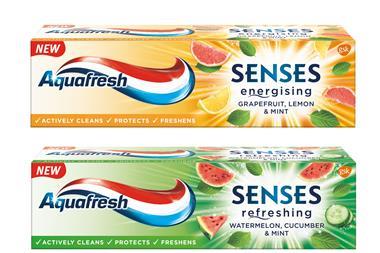
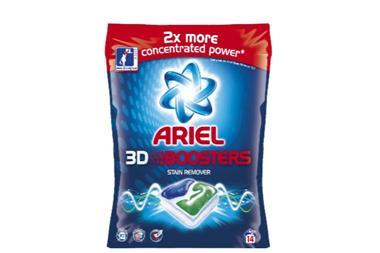

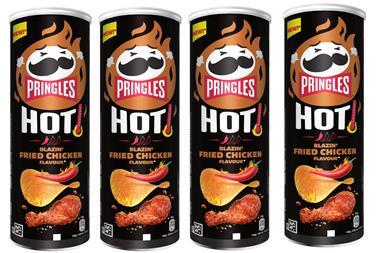

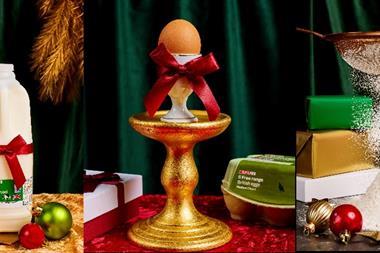

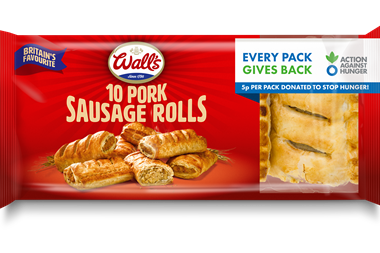
No comments yet